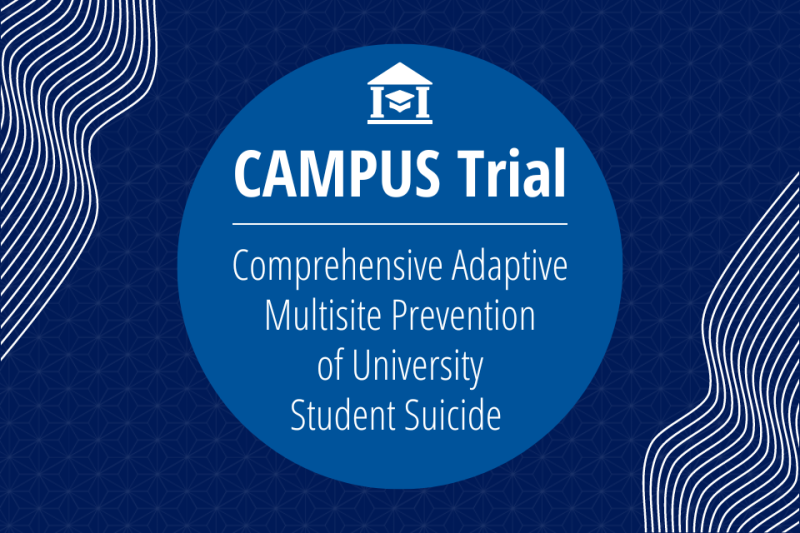
Suicide is the second leading cause of death among college students, and suicidal ideation and suicide-related behaviors are a frequent presenting problem at college counseling centers. While some students respond quickly to treatment, others require considerably more resources.
The Comprehensive Adaptive Multisite Prevention of University Student Suicide (CAMPUS) trial aims to test more targeted, adaptive strategies to better treat the range of students experiencing suicidal ideation.
In CAMPUS—the first large-scale NIH-funded, multi-site randomized controlled trial of its kind—researchers are evaluating four sequences of treatment among college students at risk of suicide who are seeking treatment at university counseling centers.
“Through the CAMPUS trial, we hope to ... provide the field with clinical guidelines to better manage college student suicide risk.”
— Scott Compton, PhD

“Providers at college counseling centers have little empirical evidence to guide them about what treatments work best to address college student suicidal risk, and perhaps of equal importance, what treatment to provide next for those students who show little benefit from an initial course of care,” said Scott Compton, PhD, associate professor in psychiatry and behavioral sciences and lead investigator for the Duke University arm of the study. “Through the CAMPUS trial, we hope to shed light on these critical issues and to provide the field with clinical guidelines to better manage college student suicide risk.”
Treatment is provided in two stages. In Stage 1, student participants are randomized to four to six weeks of either a suicide-focused treatment (Collaborative Assessment and Management of Suicidality, or CAMS) or treatment as usual. Those who respond well to either intervention will receive monthly monitoring.
Those who don’t respond to Stage 1 treatment will be re-randomized to one of two higher intensity/dosage intervention options for an additional one to eight weeks: CAMS (either continued or administered for the first time) or Counseling Center Dialectical Behavior Therapy, which includes individual therapy and skills training groups. The primary endpoint is differential reduction in suicidal risk at the end of each treatment stage and at three-month follow-up.
The institutions participating in this trial include Duke University, Rutgers University, University of Nevada-Reno and University of Oregon.